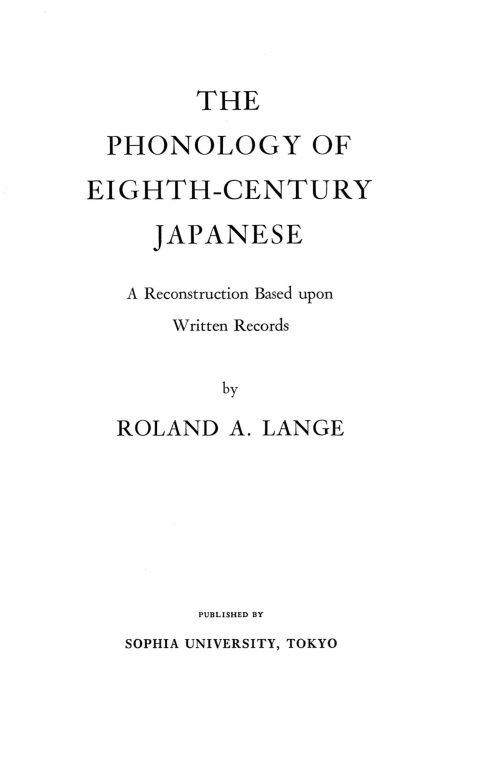The Phonology of Eighth-Century Japanese: A Reconstruction Based upon Written RecordsRoland A. Lange
Monographs (1973) pp. 1–178
This study presents a new reconstruction of the phonemic system of Nara Period Japanese. The importance of this dialect lies in the fact that it was both the first stage of Japanese represented in a large body of written material, and the ancestor of the dialect which held the position of prestige dialect until the new capital of Tokyo was set up in the nineteenth century. The reconstruction is based upon the examination of written records and the use of supplementary phonetic data, namely reconstructed forms in Ancient Chinese. It has long been recognized that this type of reconstruction holds the key to Nara Period phonology, but previous efforts proved inconclusive because of defects in the Japanese texts and Ancient Chinese forms then available. In this study it has been possible to use both a more reliable variorum text and a revised reconstruction of Ancient Chinese. The results indicate that the Japanese sound system of the period can be adequately described in terms of five-vowel phonemes, rather than the eight-vowel phonemes with which it is usually credited. The work does not assume a knowledge of Japanese linguistics, but is written for all those with an interest in Asian languages or historical linguistics.
1973. vi + 178 pages.
Hardback ¥2,000/$20.00/€20.00.
